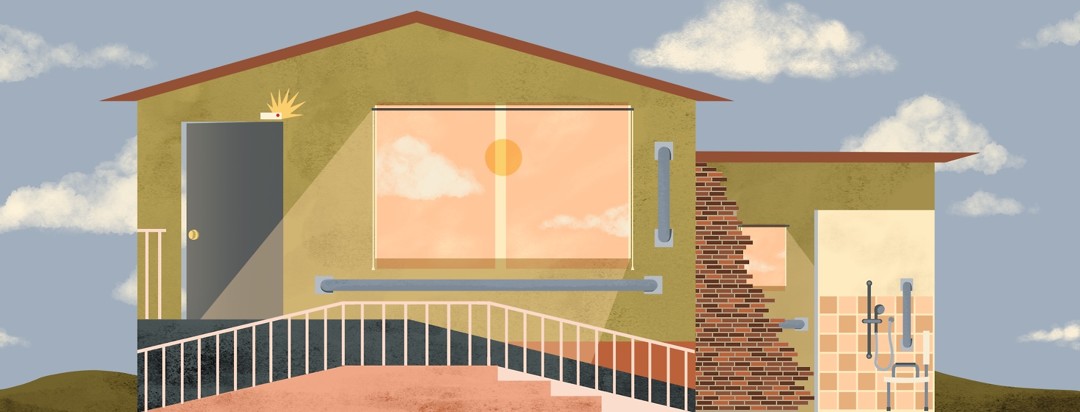Managing Daily Tasks as Alzheimer's Progresses
A number of years ago we really started to notice that Mom was having a more difficult time starting and completing daily tasks. She did not want to take a shower and would argue with me to put it off for another day.
Alzheimer's impact on daily tasks
She was struggling more with toileting issues and not making it to the bathroom in time to avoid an accident. The two stairs in front of their house were becoming more of a problem as Mom had a harder time walking and going up and down the stairs. My dad and I were worried about Mom potentially burning her hand on the stovetop if she forgot it was hot. She seemed to shy away from any type of bright light.
We worried about Mom walking out the door without someone knowing and potentially getting lost. She would frequently become agitated and frustrated as her Alzheimer’s progressed. The situation was becoming more and more stressful for my mom and for those of us trying to care for her. We realized we would have to innovate and take new steps to reduce Mom's frustration and make daily living easier for her and for all of us.
Home modifications for someone with Alzheimer's
Safety rails for the toilet
One of the first accommodations we made to aid Mom was to install toilet safety rails to help her maintain her balance and lessen fatigue while lowering and rising from the toilet. This made Mom feel safer and more comfortable. She was then able to move a little easier and minimize accidents, at least for this stage of her Alzheimer’s journey.
Shower modifications
Because Mom was refusing to take a shower even with my help, we knew this situation needed to be addressed and rectified quickly. First, we purchased a heavy-duty shower chair so Mom could sit down in the shower. She felt safer sitting down. She felt much more stability sitting in a chair rather than standing on a slippery, wet surface.
Mom also said she was afraid of the traditional shower head that rains water down on your head so that needed to change. We had a handheld showerhead installed in the bathroom that Mom could hold and use to direct the water where she wanted it to go. She felt much more in control of where the water was touching her. As a result, she felt more comfortable with the whole showering experience.
We also had grab bars installed in and around the shower to give Mom the support she needed. She felt safer stepping in and out of the shower when she could hold onto the grab bars.
Childproofing the stove
We also worried that Mom could forget the stovetop was on and burn her herself. We found “childproof” stove knob covers that allowed us to confirm whether a stove burner is on or off. They also prevented Mom from using the stove without supervision.
Light filtering shades
When we noticed Mom averting her eyes and avoiding the rooms in the house with bright sunshine. We made sure to put up light filtering shades in every room that she was usually in. That seemed to help her be more comfortable.
Mobility improvements
Because Mom was having a difficult time navigating up and down the two stairs in front of their home, even with help, we knew it was time to make some changes. We had a stair rail installed on one side of the stairs. That way, Mom could use the stair rail to hold and balance as she walked up and down the stairs. This really helped Mom for quite a while. But as she declined more and could no longer walk, she became wheelchair-bound. We then had to have a handicap ramp installed at the front stairs of their house so we could still take Mom out to her doctor's appointments and other activities.
Alarm system installation
As Mom became more forgetful, we were afraid she might leave the house with no one knowing, wander away and become lost. That was when we had an alarm system installed that would beep loudly if any of the doors were opened and alert whoever was home with Mom.
It is not easy for anyone as Alzheimer’s disease progresses. But there are many steps that can be taken to make our loved one more comfortable and secure and able to better navigate the "new normal" of their daily life.

Join the conversation